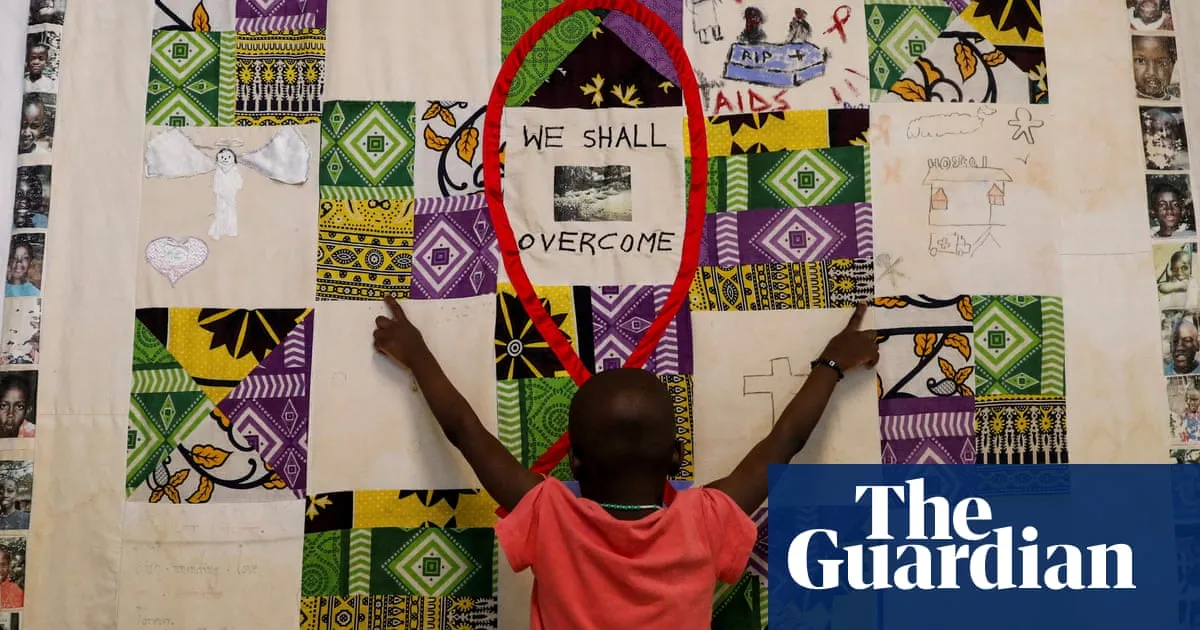
A startling new study has revealed that up to 2.9 million more children and adults could succumb to HIV-related causes by the year 2030, primarily as a result of significant aid cuts from countries such as the US and the UK. Researchers have expressed grave concerns over a potential resurgence of the HIV epidemic, which could lead to “devastating consequences” worldwide. According to their estimates, these funding reductions may result in between 4.4 million and 10.8 million additional new HIV infections over the next five years, marking a staggering six-fold increase among at-risk populations compared to scenarios with stable funding levels.
Dr. Debra ten Brink from Melbourne’s Burnet Institute, who is a co-lead author of the study, emphasized that “decades of progress to treat and prevent HIV could be unravelled.” The research, published in The Lancet HIV, is the first of its kind to evaluate the potential combined impact of funding cuts from major international donors. The study predicts a 24% reduction in global international HIV funding by 2026, which poses a significant threat to ongoing efforts in combating the virus.
Historically, the US, UK, France, Germany, and the Netherlands have provided approximately 90% of international funding for HIV. However, all these countries have recently announced or begun implementing plans to scale back their overseas aid expenditures. A notable incident includes Anneliese Dodds' resignation as the UK’s International Development Minister in response to a decision to cut the aid budget from 0.5% to 0.3% of gross national income over the next two years.
Since 2015, international donors have accounted for around 40% of HIV funding in low- and middle-income countries. The US, traditionally the largest donor, has executed a near-immediate halt to most HIV-related spending, affecting various initiatives supported by the US President’s Emergency Plan for Aids Relief (Pepfar). These funding cuts have already disrupted essential services that are crucial for HIV prevention, testing, and treatment worldwide.
The study employed a mathematical model based on data from 26 countries to generate its alarming estimates. In a worst-case scenario, which includes an immediate cessation of Pepfar support, broader aid cuts, and no mitigation strategies, the model predicts between 770,000 and 2.9 million additional HIV-related deaths by 2030, potentially reverting to levels not seen since the early 2000s.
Dr. Rowan Martin-Hughes, a co-lead author of the study, highlighted that sub-Saharan Africa could experience an even more severe impact. He noted that vital prevention efforts, such as the distribution of condoms and the provision of preventive medications, are “at first risk to be discontinued.” Disruptions in testing and treatment programs could trigger a surge in new infections, particularly in regions that have made significant strides in preventing mother-to-child transmission of HIV and reducing paediatric HIV deaths.
Dr. ten Brink stated, “It is imperative to secure sustainable financing and avoid a resurgence of the HIV epidemic, which could have devastating consequences, not just in regions like sub-Saharan Africa, but globally.” The research team has urged governments to adopt innovative financing strategies and integrate HIV services into broader health systems to mitigate the impending crisis.
Campaigners have echoed these calls, insisting that the findings of the study should trigger a reevaluation of existing plans to cut aid. Anne Aslett from the Elton John Aids Foundation remarked, “This report demonstrates the critical and urgent need for donors to recognize the cumulative impact of their decisions to cut aid budgets. If funding for the global HIV response diminishes as significantly as this report suggests, millions more people will fall ill, and health budgets will simply not be able to cope.”